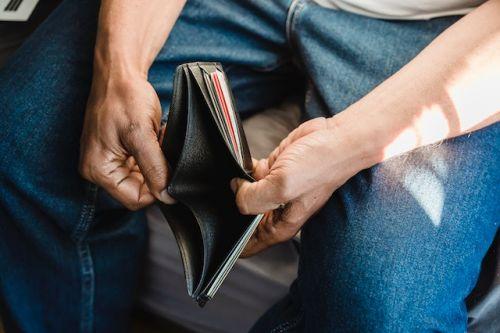As interest rates rise, more homeowners and prospective buyers are exploring cost-saving options such as assuming a mortgage when purchasing property.
While not new, this practice has become more popular recently. However, it's essential to fully comprehend the risks associated with mortgage assumption before committing to a mortgage transfer.
What is mortgage assumption?
A mortgage assumption, also referred to as an assumption agreement, involves the buyer taking over the seller's existing mortgage. This means the buyer inherits all the terms and conditions negotiated by the seller, including the mortgage interest rate.
Essentially, instead of securing a new loan, the buyer assumes responsibility for the seller's mortgage. This arrangement is formalized in the purchase offer and requires approval from the lender. Once approved, the buyer assumes the mortgage obligations directly with the lender,
In Quebec, this process is also referred to as "delegation of payment," as outlined in Article 1667 of the Civil Code of Quebec.

Example of a mortgage assumption
Peter owns a house and took out a mortgage in 2021 with a 5-year term and an interest rate of 3,25%. In 2023, he decides to sell the house, and the remaining balance on his mortgage is $350,000.
Mary agrees to buy Peter's house for $475,000. As part of the purchase agreement, Mary will assume Peter's existing mortgage with a remaining balance of $350,000, under the same terms and interest rate (3,25%) that Peter originally negotiated with the lender. If she were to obtain a new mortgage loan, her interest rate would have been 6,19%.
In addition to assuming the mortgage, Mary pays Peter $125,000, which is the difference between the purchase price ($475,000) and the remaining mortgage balance ($350,000).
After completing the sale, Mary becomes responsible for making regular mortgage payments directly to Peter's lender.
What are the benefits of assuming a mortgage?
Many buyers and sellers find mortgage assumption appealing due to its advantages, particularly concerning interest rates and upfront costs.
1. Lower interest rates
One significant advantage of assuming a mortgage is the potential to benefit from the lower interest rate negotiated by the seller. This can lead to substantial savings over the mortgage term, especially when compared to current market rates.
Let's return to the previous example:
If Mary were to secure a new loan at the current market rate of 6.19%, her monthly payment would amount to approximately $2,279. However, by assuming Peter's mortgage at the original rate of 3.25% for the remaining three years, Mary's monthly payment would decrease significantly to $1,701. This represents a considerable saving of $20,000 over the remaining term.

2. Avoid certain costs
Assuming a mortgage can also result in savings on several costs related to the real estate transaction, benefiting both the buyer and the seller. For instance, the seller can avoid prepayment penalties, and there may be reductions in notary fees.
What are the risks associated with a mortgage assumption?
Despite its advantages, mortgage assumption involves considerable financial risks for both the buyer and the seller.
1. Continued liability for the loan
One significant drawback of mortgage assumption involves the seller's continued liability for the loan, even after transferring ownership of the house. This means the seller remains the guarantor of the mortgage until it is either fully paid off or refinanced.
If the buyer default on payments, even years after assuming the mortgage, the lender has the right to pursue the seller to recover any outstanding amounts owed.
Additionally, the seller remains liable for the mortgage even if the house changes ownership multiple times in the future. This liability persists as long as subsequent buyers continue to assume the same mortgage and the original lender has not released the seller from responsibility.
For instance, if you are the fourth owner to assume the home's mortgage, both you and the previous three owners remain at risk if any defaults occur on the mortgage payments. This risk persists until the lender formally releases the seller from liability through proper mortgage release procedures.

2. Impact on borrowing capacity
Assuming a mortgage can affect both the buyer's and the seller's borrowing capacity and financial circumstances in several ways.
For the buyer, assuming a mortgage means taking on an existing debt obligation, which can impact their ability to secure additional loans or credit. Lenders assess the buyer's debt-to-income ratio, including the assumed mortgage, which can influence their credit history for future borrowing.
On the seller’s side, their ability to borrow may also be compromised. Creditors continue to view the seller as responsible for the existing mortgage debt, which could lead to complications or rejections when the seller applies for new loans, such as another mortgage for a different property.
Indeed, this ongoing financial obligation can diminish the seller's ability to access credit and may impact their overall financial opportunities, potentially limiting their options for future investments or purchases.
How can you reduce the risks?
If you're considering an assumption sale despite the risks involved, there are actions you, as the seller, can take to reduce potential issues:
- Obtain written confirmation from the lender releasing you from liability once the sale concludes. Keep this document secure until the mortgage obligation is fulfilled.
- Include a contractual clause in the sale agreement stipulating that the new buyer must secure a formal release from the lender if they decide to sell the property in the future.
While these precautions can help mitigate risks during the assumption period, they do not eliminate the need for obtaining a formal release from liability at the time of the sale.

Divorce: assuming your spouse's mortgage to keep the house
Assuming a mortgage can be a practical solution during a divorce or separation when couples want to divide property. It's one of three options available for handling property division in these circumstances.
If both spouses agree to keep the house to avoid selling it and facing penalties, one spouse can sign an assumption agreement to take over the mortgage. However, it's crucial to understand that both spouses' names typically remain on the mortgage contract, like a standard assumption.
Assuming a mortgage: how to proceed?
Assuming a mortgage involves several key steps to successfully complete the process:
- Include in your purchase offer that you intend to assume the seller's existing mortgage.
- Obtain approval from the seller's financial institution. Most mortgage agreements require prior approval for transfer.
- Prove your ability to assume the mortgage by proving sufficient income, stable employment history, and a good credit record.
- Wait for the financial institution to provide the notary with a transfer authorization letter and all necessary loan details to finalize the sale contract.
- Sign the deed of sale to officially transfer ownership.
It's important to note that certain types of mortgages, such as subsidiary or collateral mortgages, may present challenges or even prohibit transfer through assumption.
Looking for an expert to transfer a mortgage?
XpertSource.com can help you in your efforts to find a mortgage broker. By telling us about your project, we will refer you to top-rated experts, free of charge! Simply fill out the form (it only takes 2 minutes) and you will be put in contact with the right experts.





